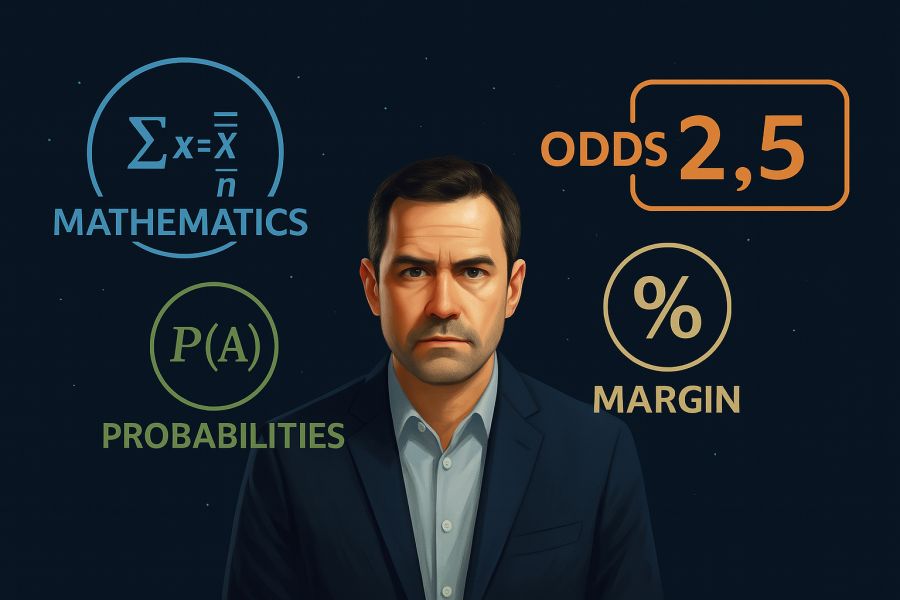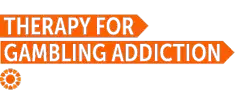Why Mathematics Shows It's So Hard to Win in Sports Betting ?
"I know someone who lives off betting," "I watch every match, I know football inside out," "Study hard and you'll win consistently."
These kinds of statements are common in social conversations, on social media, and across content from self-proclaimed betting experts. But the reality of sports betting is far more unforgiving than it seems.
A Mathematical Reality Check
Experts in mathematics who have studied the phenomenon for decades agree on one point: it is theoretically possible to make long-term profits from sports betting. But doing so is extremely difficult. Only a tiny minority manage to succeed. The vast majority end up losing money.
Why? Because beating bookmakers consistently requires advanced skills in statistics, mathematical modeling, and probability. It’s not about having a gut feeling or loving football. It’s about understanding how odds are set—and how to exploit them.
According to seasoned analysts, unless you have strong mathematical abilities and invest considerable time in building predictive models, you won't win in the long run. In fact, a truly skilled bettor would often earn more by selling their data models to bookmakers or launching their own analytics firm.
Understanding Odds and Implied Probability
To understand why most bettors lose, you first need to understand how betting odds work.
For example, odds of 2.75 mean that for every €10 wagered, a successful bet will return €27.50 (a €17.50 profit plus your original €10). This reflects an implied probability of 36.36% (1 ÷ 2.75). If your personal estimate of the true probability is higher than that, it’s a good bet—on paper.
But recognizing these opportunities consistently is far from easy.

Betting on Favorites or Underdogs: Is There Really a Difference?
Many people assume that betting on favorites is a safer strategy. But it’s rarely profitable. Let’s say you bet €100 on a team with odds of 1.10. If you win 9 times out of 10, you earn €90. But one single loss wipes out your gains, resulting in a net loss of €10—even with a 90% success rate.
Backing underdogs isn’t any better. While the occasional win can produce a big payout, it's usually not enough to compensate for frequent losses.
In the long run, success lies in spotting value—where odds underestimate the actual probability of an outcome. And that requires mathematical precision.
The Hidden Cost of Bookmaker Margins
One of the biggest threats to your betting profitability is the bookmaker’s margin. In theory, the sum of probabilities for all possible outcomes of a match should equal 100%. But bookmakers inflate this with a built-in profit margin.
Take a match where the odds are:
- Team A to win: 4.41
- Draw: 3.74
- Team B to win: 1.79
The implied probabilities are 22.68%, 26.74%, and 55.87%, respectively—adding up to 105.29%. That extra 5.29% is the bookmaker’s guaranteed edge.
In other words, even if you bet on all outcomes, you’d still lose money over time because of this margin… unless you can consistently beat the final closing odds, also known as the Closing Line Value (CLV).
The CLV is the final price offered just before the game starts. If, over time, you consistently place bets at better odds than the closing line, it signals that your model is sharper than the market's. But achieving that takes a deep understanding of betting markets, access to high-quality data, and excellent timing.
The Law of Large Numbers: The Enemy of Casual Bettors
In the short term, anyone can win. But the law of large numbers eventually kicks in. Over hundreds or thousands of bets, your returns will tend to converge with the expected value—and that value is often negative due to the bookmaker’s margin.
Casinos rely on this law to ensure profitability, and sportsbooks do the same.
Beating the Bookmakers: Is It Possible?
It is possible to beat the odds—if your assessments are more accurate than the bookmaker’s.
For example, if the odds for Barcelona to win are 2.3 (implied probability of 43.5%), and your model estimates their chance of winning at 50%, that’s a valuable bet. But again, one successful estimate isn’t enough. You need to be right over hundreds of bets, consistently.
You’re Not Playing Against Bettors—You’re Playing Against Algorithms
People often believe they’re competing against other fans. In reality, you’re betting against extremely sophisticated mathematical models developed by professionals.
Modern bookmakers use predictive models fueled by massive datasets and advanced machine learning. Some models, like expected goals (xG), evaluate every shot, pass, and phase of play to estimate the outcome. These tools are constantly refined and updated—far beyond what casual bettors can match.
The Myth of Arbitrage
Some believe in arbitrage betting—placing bets on all possible outcomes across different bookmakers, using discrepancies in odds to guarantee a profit.
While this works in theory, it's tough in practice. Odds change quickly. Bookmakers limit or ban accounts they suspect of arbitrage. The margins are often small, and execution requires precision and speed.
So while arbitrage exists, it’s usually short-lived and not viable as a long-term strategy for most people.
Rare Success Stories… at a High Cost
There are exceptions. One notable example is Matthew Benham, a physics graduate turned betting analyst, who used advanced models to make a fortune and later bought the Brentford Football Club.
But these stories are rare. Most of the individuals who are capable of beating the market either end up working for bookmakers or building data firms—rather than continuing to place bets.
The Takeaway
Sports betting can be a reliable way to make money long-term— but only if you stack every advantage in your favor: solid strategy, disciplined bankroll management, deep understanding of odds, and consistent value identification.
Betting just for fun? Not a great idea. But betting intelligently, with caution and planning, to earn a side income? That’s more realistic.
The math is clear: if you’re not educated about betting and unaware of the risks, you’re very likely to lose.
Domingo, 27 de julio de 2025

